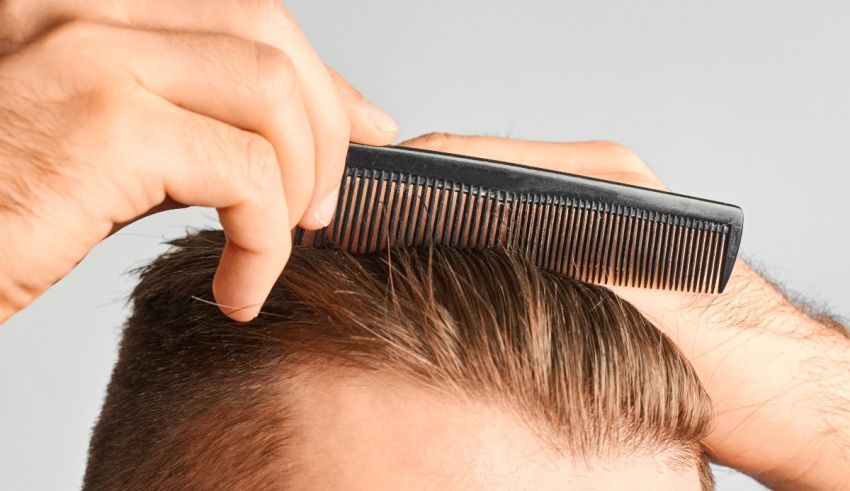
This Quiz Can Tell if You’re Going Bald.
The baldness quiz is a series of hair type, scalp and skin condition, and men’s health questions to determine if you’re losing hair.
Male pattern baldness is the most common type of hair loss, which affects 66% of men. The quiz helps identify its early signs while answering questions like, “Should I shave my head?”
Signs You Are Going Bald.
It’s normal to lose up to 100 strands of hair per day. However, if you’re frontal hairline is recessing, you have less hair on the temples and crown (vertex) of your scalp, and your hair looks thinner, you are most likely going bald.
5-Min Male Pattern Baldness Test at Home.
Take a picture of your frontal hairline, temples, and vertex (top of your scalp) and compare them with older images. If your hair looks thinner and your hairline forms an M, U, or V shape, you’re losing your hair.
Note that men experience a standard transformation called a mature hairline. So, it’s normal if you’re frontal hairline is slightly recessed compared to your teenagerhood. But if the difference is significant, you might want to consult a doctor.
When Will You Lose Your Hair?
66% of men lose some or all their hair by age 35. But there is no definite time for experiencing male pattern baldness. While many go bald during adulthood (25-35), others undergo premature baldness due to hormonal or skin disorders, substance abuse, or excessive anxiety.
What Causes Hair Loss in Men?
DHT is the hormone that often leads to male pattern baldness. But there are other factors involved, such as hormonal/skin disorders, harmful products, nutrient deficiencies, and medical conditions.
Here are the top three causes of hair loss in men:
Genetics.
81% of male pattern baldness is hereditary, meaning that genetics is the #1 cause of hair loss in men.
Hormonal imbalance or disorders.
Some men’s body produces excessive DHT, which, combined with having sensitive hair, leads to baldness.
Medical conditions.
A thyroid disorder, anemia, and iron deficiency are some of the primary causes of hair loss. But a wide range of conditions has the same effect.
Questions to Ask Instead of “Am I Going Bald?”
Even if you have no apparent sign of baldness, the answer to the following questions could determine if you might undergo it shortly.
“Am I taking drugs or supplements that might damage my hair?”
NSAIDs, beta-blockers, cholesterol-lowering, and hormone-related drugs can cause baldness. Moreover, over-supplementing certain nutrients (selenium, Vitamin A and E) can have the same side effects.
If you’re abusing the said drugs or supplements, you will likely experience male baldness.
“Is any of my close relatives bald?”
Four-fifth of hair loss is linked to genetics. So, if your parents, grandparents, or other first-degree relatives are bald, you are more likely to experience it at some point in your life.
“Is my anxiety or stress out of control?”
According to Mayo Clinic, stress and hair loss can be related. Telogen effluvium, trichotillomania, and alopecia areata are three baldness types directly linked to excessive stress and anxiety.
If your stress level is out of control, you might go bald.
What to Do if the Quiz Says You Might Go Bald?
Don’t panic. Hair loss is considered a treatable condition. So, even if the test thinks you’re going bald, many precautions still could delay or stop the process.
Here’s what to do if the test results are positive.
Talk to a trichologist or dermatologist.
A trichologist or dermatologist could order medical tests to roll out all other possibilities and determine the actual cause of your hair loss. They can also prescribe proper medications or help you restore your hair through lifestyle improvements.
Know your options.
Medications, hair transplants, and permanent wigs are only a few of the options you have. But consulting a professional could give you more alternatives to cope with or treat your baldness.
Don’t overthink your look.
Stress worsens hair loss. So, if you want to restore your hair and prevent baldness, stop overthinking it.
Disclaimer
The baldness quiz is not a replacement for medical tests. Please, consult your doctor before making any decisions based on the results.




























